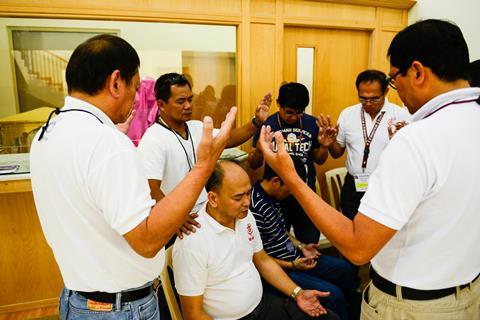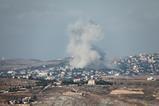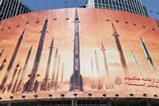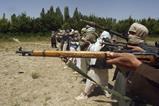Human rights issues in Qatar have been making front page news throughout the World Cup, but you will struggle to find a secular human rights organisation speaking up for freedom of religion. While the rights of some minorities are championed, Christians are simply ignored, says Dr Martin Parsons

Few in the West today have any idea of what it means to live in a strict Islamic society ruled by shari’a [Islamic] law. Qatar is just such a society. In fact, it has some of the most draconian restrictions on freedom of religion anywhere in the Islamic world.
Of the ten key aspects of freedom of religion which have historically developed in the West, Qatar only (partially) permits one: freedom to establish places of worship. And even then only for expats.
Crimes against Christianity
Qatar’s criminal code begins by stating that “apostasy” - leaving Islam - is a crime technically punishable by an automatic death penalty. So, any Muslim converting to Christianity faces death and, as it is a hudud crime (which must be dealt with by the penalty prescribed in the Koran or Hadith) in theory, the courts having no discretion to impose any other penalty.
Just about every other aspect of Christianity is also banned: organising a meeting which “favours another religion” - ten years in prison; attending such a meeting - five years in prison; owning a Bible, Christian literature or audio recordings which you might show someone else - two years in prison.
In the virtue signalling which has accompanied the World Cup, we have witnessed a clash of worldviews
Then there is the catch-all clause of doing anything else “offending the Islamic religion or any of its rites or dictates” – which potentially means that even criticising the death penalty for apostasy could land you seven years in prison. But the worst clauses are those which say that “nothing is an offence…if it is justified by Islamic shari’a.”
What that means is that if someone takes the law into their own hands and kills a member of their family who has become a Christian – which is a widespread issue in Islamic countries – then they will not be punished.
Small steps to progress
In practice, the extent to which these punishments are enforced has been held back by the attitude of the Emir, Sheikh Tamim bin Hamid al-Thani, who, as an absolute monarch, appoints all judges. It also varies according to which nationality Christians belong to. In 1980, Qatar had a population of around 0.2 million, today it is around 2.5 million, 88 per cent of whom are migrant workers.
Most come from countries such as India, Pakistan and the Philippines. Western expatriates get treated best, but Asian Christians (of whom there are around 300,000) are subject to significant harassment and have few rights in any area of life. The small number of Qatari Christians do not even officially exist.
The present Emir and his father have brought about some cautious but significant changes. These include establishing a centre for interfaith dialogue between Muslims, Christians and Jews. They have also allowed the construction of a church complex outside of the capital, Doha - although this is strictly for expatriate Christians with access tightly controlled to prevent any Qataris attending.
These actions have gently introduced the concept of religious co-existence to Qatari society. Four years ago, there was a debate in the press regarding whether visible expressions of Christmas celebrations by expatriates should be allowed. When a number of other Muslim-majority countries (notably Commonwealth member Brunei, whose population is nine per cent Christian) have banned the public celebration of Christmas, even the debate was a step forward.
In the balance
Sheikh Tamim was educated at Sherbourne, a British public school with a Christian foundation. He has sought to develop close economic ties with the West. However, in the virtue signalling which has accompanied the World Cup, we have witnessed a clash of worldviews - between a very strident form of Western secular liberalism and a very conservative Islamic society.
The small number of Qatari Christians do not even officially exist
The clash has provoked a particularly strong anti-Western backlash in the Qatari press and on social media which, at times, has threatened to undermine the position of the Emir himself. As the World Cup draws to a close and the international media spotlight withdraws from Qatar, the limited progress that has been made towards freedom of religion for Christians in Qatar now hangs in the balance.
Read the Lindisfarne Centre for the Study of Christian Persecution’s profile on Qatar





































